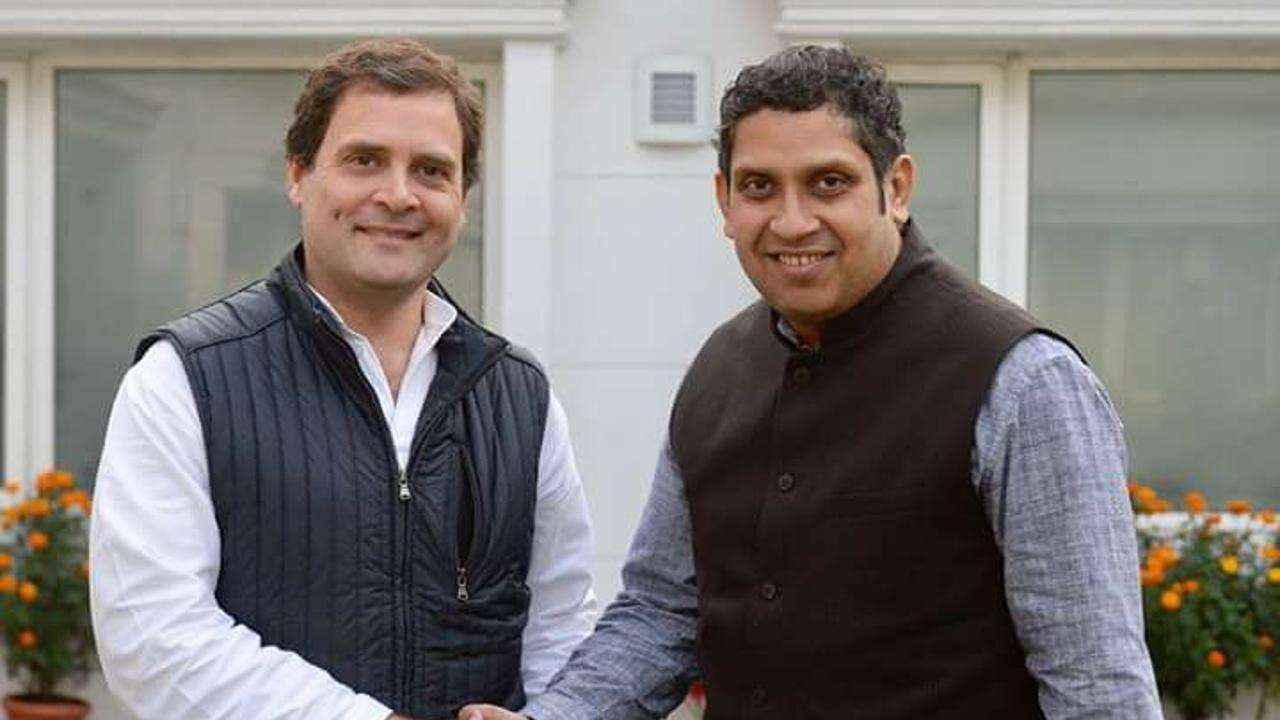
Praveen Chakravarty, who heads the Congress’s data analytics team, says that the minimum income guarantee, announced by president Rahul Gandhi on Monday, is an “idea that has been endorsed by economists all over the world”. In an interview to DNA, he says that the idea has a fair amount of thought gone into it.
Edited excerpts:
Of course, the idea is not a sudden one. We involved external experts across the world and had stakeholder consultations. The decision to announce on that day was Mr Gandhi’s and it made logical sense as he was in Chhattisgarh at a loan waiver programme at the Kisan rally. Every time the question that is asked is: What after loan waiver. So, he thought it was an appropriate time to announce it: That the Congress party will bring in a minimum income guarantee for everybody when it comes to power. This is how the sequence of events played out.
The plan is definitely workable and doable; it was not a mere announcement there was a basic structure that was there. The minimum income guarantee is not universal basic income; it is not for everybody, it is targeted for the poor family. The idea is that every Indian family must be at a certain income level; it could be Rs 1 lakh or Rs 1.5 lakh a year, and there’s a means to arrive at that amount. Once we do, then we will find out the families that live below that. This income support is for those people, to bring them up to the minimum level. UBI is different while being broadly similar. Under it, everybody will get a certain amount of money. We felt that was not the right, and ours is a targeted support guarantee. What will be the support, how much will people get and who will get, are questions that are being worked out right now. When the PM can stand at the Red Fort and say I will double farmers income without any substantiation, why cannot we make a manifesto promise without being expected to show a cabinet response with it? And I can say as someone involved in the process, with Mr Chidambaram, that there’s thought that has gone into it. The details will be in the manifesto.
Let’s forget the identification of poor, let’s think of what basic income is. It will be on a household basis.
We have done a lot of work and played out a lot of scenarios and I can tell you that we are convinced of its feasibility; it is not exorbitant. And, not only us, the former chief economic advisor of the current government, Arvind Subramanian, even wrote a detailed piece saying this is an idea that must be done. Coincidentally, he wrote it on the very day the announcement was made.
Not really. There are currently 400 schemes, and we will look at every scheme and rationalise expenditure. But subsidies in kind, such as food, agriculture, fuel, health, education, etc. must continue. Some subsidies, which are cash in nature, they might be brought into this. It is very important now. All the GDP growth of 6-7% has meant nothing for the bottom 10%. There are no jobs which mean there is no income, and the agriculture sector is in distress, farmer incomes have stagnated. In all our consultations, people are saying one thing: Give us more money. Putting money in the hands of the people is what minimum income guarantee is. I have called it “remonetisation” of the Indian economy.
We provide one input in candidate selection through feedback from the ground, primarily from the Congress workers. It is one of many inputs. Our role is to get feedback directly from the ground, about the choice of candidates and pass that for the selection process to the screening committee.
Our registration process is not a jumla; it's live and one can see where are workers being added. We have a lot of work; there’s a categorisation of seats, and identification of those, take feedback from workers, and, identify the issues on the ground. Our main objective is to create the army that can go to the door to door campaign. We have launched a ‘ Ghar-Ghar Congress’ initiative and we have launched that in Rajasthan, and in Gujarat, we have started candidate feedback from workers already, as well as three more states. This is not a national election, it’s not an election in 26 states; it is 543 individual elections. These elections will be determined at the constituency level, seat-by-seat elections.